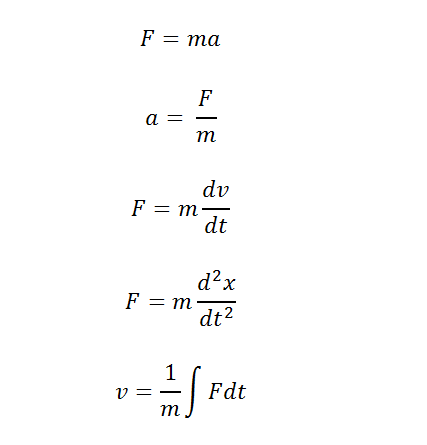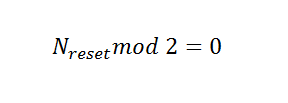Have you ever had a case where you had to perform an invalidation search and you need a prior art for a claim at the heart of which has a mathematical expression? Needless to say, you wouldn’t like gambling your case on just any prior art.
Are you wondering what could be sophisticated approaches here for finding a prior art? Well, keep reading to find the answer:
What keeps you from the most desired prior art for a patent with mathematical expression?
First, let’s see what is there between you and the most needed prior art. If you have ever tried it, you would know instantly that search strategies from your regular toolkit won’t work here. Here’s why:
No database provides functionality for searching mathematical expressions
And it’s highly unlikely that they’ll provide such functionality in the near future. It’s because, in most of the patents, the expressions have not even been digitized – they still sit there in the form of images, beyond the reach of a keyword-based patent search! Even if it were all digitized (as they are in some documents), it still won’t be enough. Here is why:
The expression can be described in hundreds, if not thousands of ways
Some of the ways in which a simple equation (F= m*a) might be described are:
On top of this, we also need to consider that patents are cryptic documents. They may also use any combination of symbols for the variables.
So the ways in which an equation could be written are virtually endless.
The document of interest may not have any equations at all!
Yes, a document of interest could simply write:
It should be appreciated that the present invention assumes a linear relationship between the force applied by block 101 on the block 103a, and the acceleration produced in block 103a in response to the force applied thereto by block 101.
…and never bother to go into equations and formulas. Another interesting example where a patent could write:
The reset indication information is transmitted in selective slots numbered Nreset such that:
Another document could write:
The reset indication information is transmitted in the even-numbered slots.
or
The reset indication is transmitted firstly in slot 0, and then in every alternate slot.
So is there any way to cracking such critical claims where an expression is claimed? Definitely yes, there is always a way. Though it is not a cakewalk, it depends on how the concept is being perceived and what strategy is to be used.
So if we summarize the issues, we can say that:
- There exist multiple ways to claim an inventive concept using a mathematical expression in a patent
- The expression can also be written in words
- Different variables can be used for the same expression which causes confusion
- Search engines are of no help in such a search
- You are prone to skip a result that is available as images in older patents
The invalidation search for such patents may seem like rocket science as one cannot directly find claims with the expression present in them.
A note from authors: similar to this, we have created a free guide where we’ve compiled seven unconventional yet actionable design search strategies that will help you find success in your next search assignment. Click here to download
How Prior Art Search Should Be Done in Case of a Mathematical Expression
- Searching for the problem solved by the equation
The equation may be providing a simpler or faster way of calculating a variable that could land up to a relevant approach challenging the claimed equation.
- Searching for the variables in mathematical notation
There can be numerous phrasal, variables and annotations via which a claimed variable can be mentioned like ‘Number of resource blocks’ may be written as numRB or num_RB or n_RB or RB, etc. such may get skipped or remain hidden with their meaning which could actually be our weapon of victory.
- Searching for comparisons
When equations are not written but the text implies the relation. Words like ‘equal to’, ‘equals’, ‘proportional’, ‘proportionately’ and others relate to the expression logic in word form. During a search, such words can be of help while interpreting the required concept present in a phrasal form.
If we take gravitation force law which is stated as:
Now in the above case,’g‘ (gravitational force) is directly proportional to mass then such a concern can be searched by
(((g or gravit+ or (gravit+ 2 NEAR force)) NEAR2 (equal or ”=“or proportiona+4 or “” or …)) Near5 (mass or body or …)
In the above manner, we can channelize the search.
- Analyzing the equation to make a general mathematical relationship
If the equation to be searched is Y = AX + B, search for any paragraphs talking about Y, X, A, B
Sometimes B can be written as B = C + D, so analysis has to be done on the ultimate and intermediate variables, using which the same equation can be written.
- Making use of mathematical terminology
If the equation uses any special mathematical functions, e.g. factorial, floor or ceiling function, these words should be searched. Such functions may be mentioned directly as they are way specific in their meaning.
From the analysis point of view:
An important point while performing a patent invalidity search for such concepts is that you are very careful while analyzing/interpreting the patents. As interpreting the references can be a complex task, hence we come up with below guidelines that may help you.
- Rearranging variables in the reference may yield the same equation. This is because sometimes the expression claimed or mentioned in the search reference is portrayed from a particular point which if rearranged can turn up the same expressed as required.
- Special cases, E.g. when a set of values are provided to some of the variables may yield the same equation:
E.g. Y = 0.5X + 3.2 is a special case of equation Y = AX + B, limits on values of A and B may be implied naturally, by specification, or by reference to other prior-art
- Sometimes the equation is written in text form, then the mathematical expression can be developed word by word
E.g. “Y would, in such and such way, vary almost linearly with X”, this implies the equation Y = AX + B
As we have shared in the past, finding a result in a patent invalidity search is more about having the right mindset rather than the search strategies. Search strategies cannot get you the result if your mindset is not tuned correctly. So try to build a culture where a patent search is not perceived as a search but as a challenge.
Authored By: Abhishek Bhatia, Team Lead, Concept Hacking and Mahesh Maan, Senior Research Analyst, Prior Art











